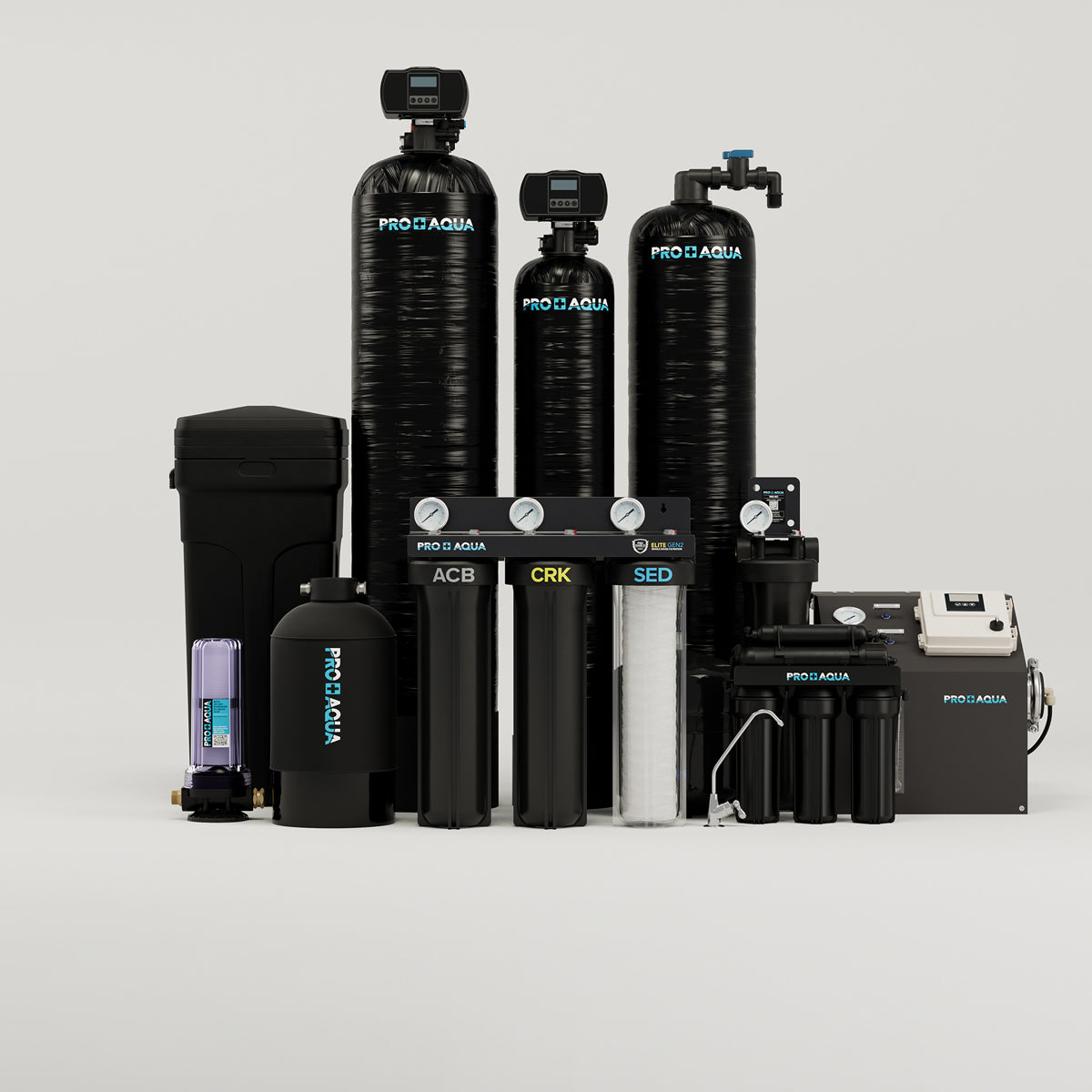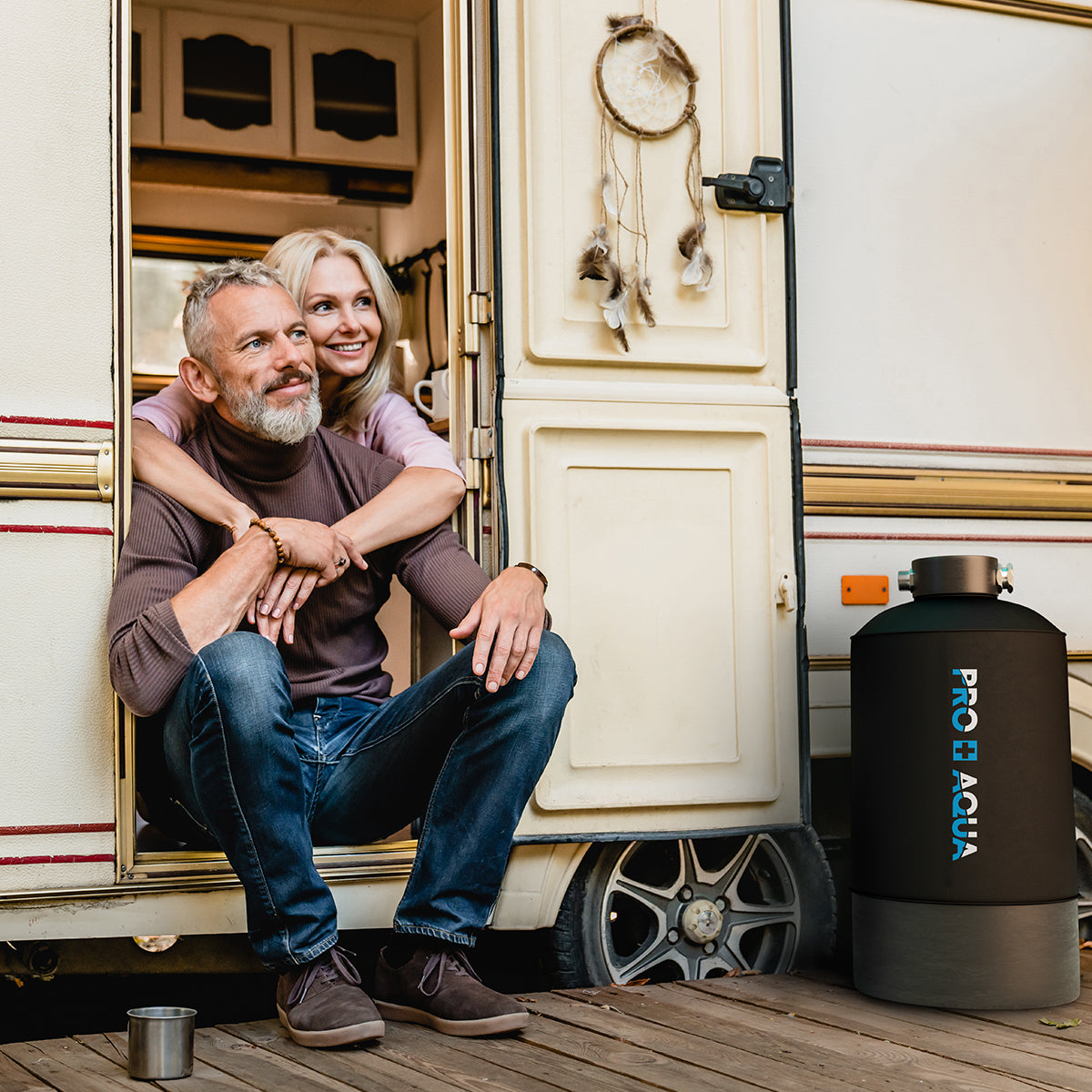Hard water might be invisible, but its effects are anything but. From spotty dishes to itchy skin and shortened appliance lifespans, the signs are all around you. Luckily, water softener systems provide an easy fix.
In this guide, we’ll walk you through how a water softener works and why soft water systems matter.
What Is a Water Softener System?
Put simply, it’s a device that removes hard minerals like calcium and magnesium from your water. These minerals, while not harmful to your health, wreak havoc on your plumbing, skin, and appliances.
What Do Water Softeners Do?
Water softeners work by targeting hardness at the source. They remove minerals using a process called ion exchange, replacing them with softer sodium or potassium ions. They provide:
- Water that feels silkier on your skin
- Cleaner dishes and laundry
- A longer life for your water-using appliances
What Does a Water Softener Do for Well Water?
Well water often contains elevated levels of hardness and unwanted iron, sediment, or sulfur. This makes a softener even more essential for well owners.

Pro Tip: The PRO+AQUA Three System Bundle is designed specifically for well water, combining powerful filtration and softening in one high-efficiency unit.
It not only reduces hardness but also removes iron, rust, and other contaminants that can stain sinks or clog pipes.
How Do Water Softeners Work?
Let’s break it down.
A traditional water softener uses a resin tank filled with tiny beads. These beads carry a negative charge and are saturated with sodium ions. As hard water flows through, positively charged minerals like calcium and magnesium get attracted to the beads—and swapped out for sodium.
It’s like a mineral trade-off: hard minerals out, soft minerals in.
When the resin beads become saturated with hardness ions, the system goes into regeneration mode. During this cycle, a brine solution flushes the beads clean, restoring their softening power.
How a Water Softener System Works: Step-by-Step
- Hard water enters the system through the inlet valve.
- It passes through the resin tank, where calcium and magnesium are removed.
- Soft water exits the system to your home’s plumbing.
- After a set volume, the control valve initiates regeneration, flushing the resin with a salty brine.
- The tank is ready to go again—automatically.
Water Softener System Diagram
Ever wonder what this actually looks like? Here’s a simplified diagram of how a water softener works:

Benefits of Water Softener Systems
Now let’s talk about the top 10 water softener benefits—because they’re more than just comfort perks. A soft water system brings serious savings and performance upgrades to your home.
Water Softener Advantages:
|
Extends Appliance Life |
Scale buildup is one of the leading causes of water heater failure and dishwasher breakdown. |
|
Reduces Soap & Detergent Use |
Soft water lathers better, so you’ll use less and save more. |
|
Gentler on Skin & Hair |
Many people report smoother skin and shinier hair after switching to soft water. |
|
No More White Spots |
Say goodbye to crusty faucets and cloudy glasses. |
|
Boosts Water Heater Efficiency |
Soft water heats up faster, cutting energy costs. |
|
Keeps Laundry Soft & Bright |
No more mineral buildup that dulls fabrics. |
|
Protects Plumbing & Fixtures |
Pipes stay clearer longer, and fixtures stay cleaner. |
|
Prevents Scale in Irrigation Systems |
Great for homeowners with gardens or landscaping needs. |
|
Improves Cleaning Power |
Less scrubbing, less buildup, fewer cleaning products. |
|
Adds Resale Value to Homes |
Buyers love homes with modern, efficient water systems. |

Do I Need a Water Softener?
If you're still wondering, “How do I know if I need a water softener?”, here's a quick checklist:
- Soap won’t lather easily
- White spots on dishes or glass
- Scale buildup on faucets or showerheads
- Dry or itchy skin after bathing
- Frequent plumbing or appliance issues
- You live in a hard water region or use well water
You can test your water hardness with a home test kit or TDS meter. If your water scores over 7 grains per gallon (gpg), a softener is highly recommended.

Looking for a starter system? Check out the PRO+AQUA Portable Water Softener, ideal for RVs, apartments, or anyone who wants to try soft water without a full install.
Water Softener vs Water Conditioner: What's the Difference?
While water softeners remove hard minerals, water conditioners alter minerals to reduce their impact (like preventing scale) without removing them completely.
Conditioners are often salt-free and lower maintenance—but they don’t offer the same full benefits of true softened water.
Choosing the Right System for You
When selecting a water softener system, consider:
- Home size and number of bathrooms
- Water source: well vs municipal
- Contaminants: iron, sediment, chlorine
- Regeneration type: timed vs metered
- Goals: full softening or just scale reduction
PRO+AQUA makes it easy with bundle options, whole-house systems, and portable units—all built with premium components, easy installation, and US-based support.
Water Softener FAQs
Q: How does a water softener system work?
A: It uses ion exchange to swap hard minerals like calcium and magnesium with sodium, leaving your water soft and scale-free.
Q: What does a water softener do for well water?
A: It removes hard minerals and can be bundled with filters to handle iron, sediment, and more.
Q: Is a water softener necessary?
A: If you have hard water, yes—it protects your plumbing, appliances, and skin.
Q: How can you soften water at home?
A: With a salt-based or salt-free water softener. For well water, look for systems that also handle iron and sediment.
Final Thoughts
Hard water doesn’t have to be your norm. With a well-designed water softener, you can:
- Improve water quality
- Protect your home’s plumbing
- Enjoy better showers, laundry, and cleaning
- And extend the life of your water-based investments
Whether you're tackling harsh well water or just tired of soap scum, there's a PRO+AQUA softener made for your setup.







Leave a comment
This site is protected by hCaptcha and the hCaptcha Privacy Policy and Terms of Service apply.